
Archive for Rabbi Avi Matmon
Our heavenly Sukkah
Give Me Life


When we say ‘Remember us in the book of life’; it’s not a gimmie, because the end of the statement says ‘lema’anach’ (We’re doing it for You. We are bringing our own uniqueness to serve You in whom nobody else can.) Therefore, our contribution is essential; it is part of the existence of the world and we should have it in mind that we’re doing it for G-d.
Precious Years


A deal is a deal


The Little Red Headed Girl
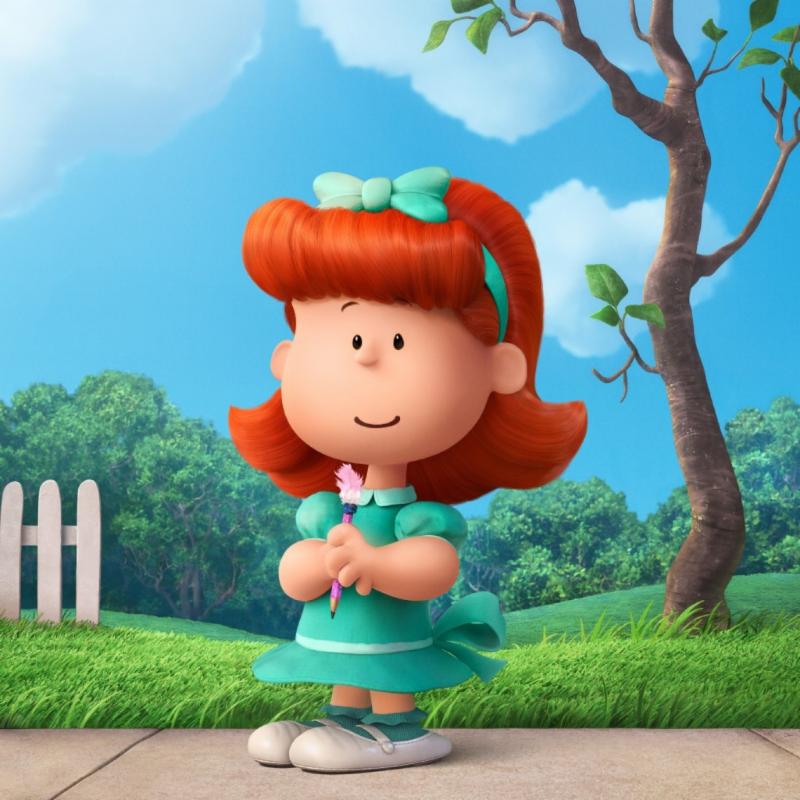
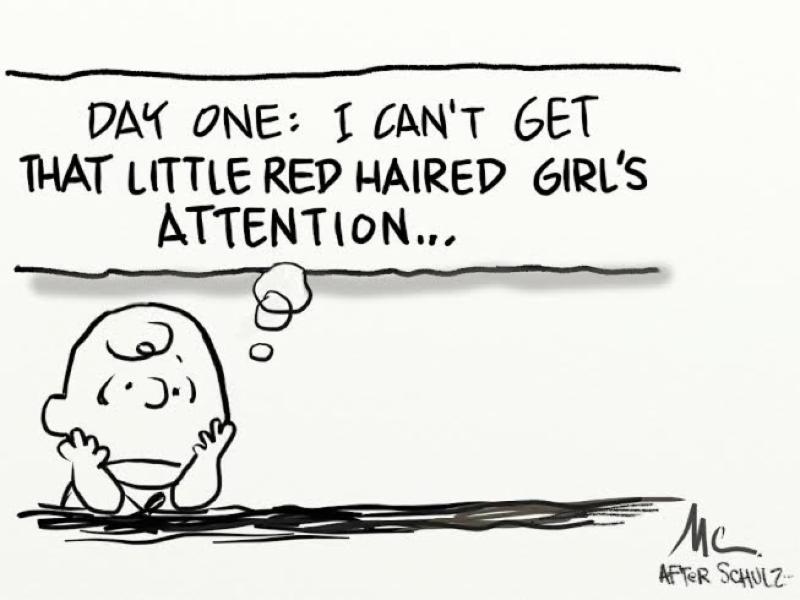

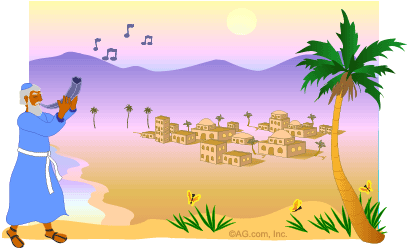
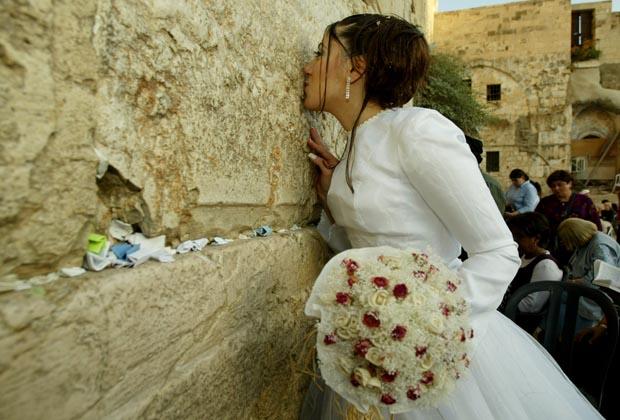
Human Dignity – part 2
|
Dedicated to Michal Alibayof, who led us with her heart.
She showed us how to be brave and the healing power of friendship.She taught us how to tie a scarf, and to tie it onto our neighbors- forming an unbreakable bond that we will never let go of. She was
FIERCE, FEARLESS, AND FABULOUS
and set the bar for generations to come … all under the age of 40.
|
 A very close friend, Ronny Alibayof, unfortunately lost his wife a number of years ago. This past Wendsday evening, the 21st of September, he celebrated her life with a very moving event. The program commenced with his daughter, Samantha introducing an awareness of tremendous importance. She called everyone’s attention to 5 Under Forty, an organization founded by Jennifer Finklestien, but inspired by Michal Alibayof. A very close friend, Ronny Alibayof, unfortunately lost his wife a number of years ago. This past Wendsday evening, the 21st of September, he celebrated her life with a very moving event. The program commenced with his daughter, Samantha introducing an awareness of tremendous importance. She called everyone’s attention to 5 Under Forty, an organization founded by Jennifer Finklestien, but inspired by Michal Alibayof.“I was introduced to Michal Alibayof who, 3 years earlier at age 32, was diagnosed with breast cancer. I will never forget the moment I saw Michal for the first time. She was young, beautiful, healthy-looking – but mostly I was awestruck by her positive energy. It was at that exact moment; I could believe that I might recover. She assured me I would get my life back. As I remember it, it was a surreal and powerful encounter.
Michal and I developed a unique bond – and it is this bond which serves as the model for the 5 Under 40 Foundation. Michal shared her courage and her optimism with me; she literally took me by the hand and changed my life – simply by helping me believe I would live my life. We chartered every course together – the tricks to curb the side effects from chemotherapy, to beauty regimens to the physical and emotional toll of breast cancer.
With profound sadness, Michal passed away on Valentine’s Day, February 14, 2012. I was fortunate enough to visit her in Tel Aviv in November 2011, as she had moved back home in 2009. She is the first young woman I have ever known who died of breast cancer.
I am now 10-years cancer free; during this time, I have felt the impact of my breast cancer diagnosis in many ways, large and small. I elected 5 years ago to undergo a prophylactic contralateral mastectomy. I have availed myself of many physical and psychological benefits. Most especially, I founded the 5 Under 40 Foundation in honor of the best friend I ever had.”
After speaking to Michal’s husband, Ronny and another friend in attendance, Rafi Fouzailoff, I was flabbergasted by the enormous effort Michal made to preserve her dignity. Michal reiterated to her friend Jenifer, “you cannot give up on who you are. You have to continue to look your best no matter what.” Michal purchased the best wigs because of the effects of the chemotherapy and still maintained her appearance to the highest caliber. Ronny said “she would not allow me to look at her without the wig or head covering”. Michal kept her human dignity. A quality which we said earlier, is what God expects of us. Michal is an inspiration for us, not to succumb to depression and to live life to the fullest, until the very last moment
|
Human Dignity – Rosh Hashana
|
This article was constructed with the help of either writings, lectures or shiurim of Rabbi’s Yissachar frand, Asher Hurzberg, Yossi Bilus
|
 It’s in our character to search for an advantage in life; perhaps it is in our genes; perhaps it’s because of how we were raised. Making the optimal choice is thought of wherever we go and whatever we do, because we want the best for ourselves and our children. Our people like to ask a lot of questions to give us an edge in the world. We tend to make fun of ourselves; we tend to put our culture down; “I don’t want to move there, too many Jews”; “we are all Jewish mama’s boys.” These are all famous Jewish put down jokes delivered by none other than Jews, themselves. However, deep down, we know that our people are blessed. In every criterion in life, if we put our mind to it we’re number one. We Jews are a highly competitive nation that has achieved leaps and bounds in every aspect of life. That frame of mind is ever so important in this most crucial time of the year, when we are judged for our past deeds and potential future. Squeezing the most from our prayers and behavior during the Yamim noraim-days of awe, so G-d may place us in the book of life, is our primary goal. It’s in our character to search for an advantage in life; perhaps it is in our genes; perhaps it’s because of how we were raised. Making the optimal choice is thought of wherever we go and whatever we do, because we want the best for ourselves and our children. Our people like to ask a lot of questions to give us an edge in the world. We tend to make fun of ourselves; we tend to put our culture down; “I don’t want to move there, too many Jews”; “we are all Jewish mama’s boys.” These are all famous Jewish put down jokes delivered by none other than Jews, themselves. However, deep down, we know that our people are blessed. In every criterion in life, if we put our mind to it we’re number one. We Jews are a highly competitive nation that has achieved leaps and bounds in every aspect of life. That frame of mind is ever so important in this most crucial time of the year, when we are judged for our past deeds and potential future. Squeezing the most from our prayers and behavior during the Yamim noraim-days of awe, so G-d may place us in the book of life, is our primary goal.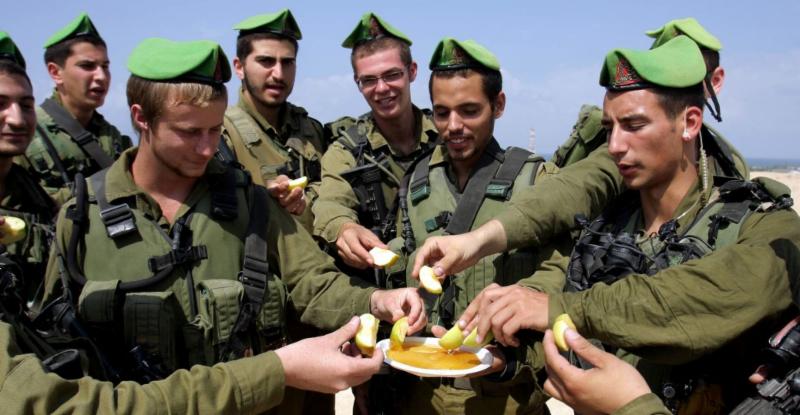 The sages ask: what is the best way to approach G-d to receive a sweet, good verdict for the upcoming year? The sages, in their scrutinizing manner, asked a very powerful and obvious question. I’m sure the reader thought of it as well. Why does Rosh Hashanah [the Day of Judgment] comes before Yom Kippur [the Day of Atonement]? Logically, it would seem to make more sense – and certainly be to our advantage – for the day of mercy, when we are forgiven for our sins to precede the day in which we are judged for those sins. If we are to get the edge on a favorable decree, that is how it ought to be.
Once again, I found incredible, uplifting words of wisdom from Rabbi Yissachar Frand, quoting Rav Shimon Schwab (1908-1995). To appreciate his answer, we must first analyze the second chapter of Yehoshua (which we read as the Haftorah for Parshat Shlach).
After spending forty years in the desert and after our great leader Moshe passed on, we were led by Yehoshua, Moshe’s right hand man, who would lead us into the Promised Land.
 As the first order in achieving this goal, Yehoshua sent out spies to reconnoiter the land. Jericho was the first city to be in invaded in the land of Canaan. Yehoshua’s intention was to find out the mood and pulse of the enemy. For this reason, the spies had to travel through an interesting place, to say the least, Rachav’s house. Since travelers from all parts of the land passed through her inn, she was continually aware of the country’s mood. Why was her inn so popular? Well, it wasn’t her inn that was popular; it was she.
There are commentaries who identify Rachav as an innkeeper, basing the word Zonah on the word Mazon (food). However, as the Gemarah implies, the simple reading of the pasukim [verses] is that Rachav was a woman of ill repute – the normal meaning of the word Zonah comes from the word Zenut – (sexual immorality). Interestingly and astonishingly, our assurance and security in entering the holy land of Israel, was on the merit and expertise of a prostitute!
 The Gemarah (Megila 14, zevachim 117) says Rachav was one of four of the most beautiful women who ever lived. She was so beautiful she could make an impotent man able to function. She had a uniqueness as to how to make a man perform and she did it through her intelligence, by which she was able to transform herself and act like whomever her client imagined her to be. She was a psychologist par excellence. With those tools, no man could resist her advances. Rachav was a prostitute and the best in the business. In fact, the word Rachav means “to spread,” meaning she would say yes to everybody weather king or commoner. She would sleep with any guest that would travel to her inn.
 Rachav provided the spies with the information that they wanted to hear. “I know that G-d has given you the Land, and that your terror has fallen upon us, and that all the inhabitants of the Land have melted because of you…” Because of her profession she knew the minds and thoughts of the people, for there was not a prince or ruler in the area, who did not come by and use her services. She had served as a harlot since she was ten years old. This was her profession throughout the forty years when the Jews were wandering in the wilderness. Therefore, her report that the whole country was in mortal fear was measured with the highest importance, by the Jewish leaders.
At that point of time, at the age of fifty, Rachav repented and actually converted to Judaism. She confessed to G-d that during her years of sin, she made use of three devices to secretly bring customers into and out of her residence: The rope, the window, and the wall. Therefore, she now used these same three items to help the spies escape from her dwelling and from being noticed by the Canaanites, thereby saving their lives. She asked that she be forgiven for her inappropriate use of these devices by virtue of the fact that she now risked her life and used them for a praiseworthy reason. Such is the simple reading of the Gemara in Zevachim.
Rabbi Schwab is not satisfied with this interpretation and asks what is meant by her using the rope, window and wall for people to sin? She ran a house of ill repute for forty years. Everyone must have known exactly what was going on in that house. There was no reason to have a secret entrance by way of the window and rope. After 40 years, who were these princes and kings trying to fool? What were they trying to hide by climbing up the wall and entering through the window? Everyone knew Rachav the harlot and the nature of her business.
Rav Schwab interprets the Gemara differently. The Gemara is teaching us one of the secrets of Repentance. What finally inspired Rachav to repent? Rachav was inspired to repent through the realization that after 40 years in business, there were still people who were embarrassed to walk into her front door! There were still people who would be so ashamed that they would only enter by way of the rope, the wall, and the window. The fact was that after all these years, there were still people who had a modicum of dignity and embarrassment. They possessed some suppressed degree of sensitivity and morality, that at least prevented them from committing sin in a blatant fashion. Despite the fact that the society was immersed in immorality, there were still individuals who at least had a sense of guilt, some remnant intuition of possessing “Tzelem Elokim” [Divine Image]. Teshuvah can only begin under such circumstances.
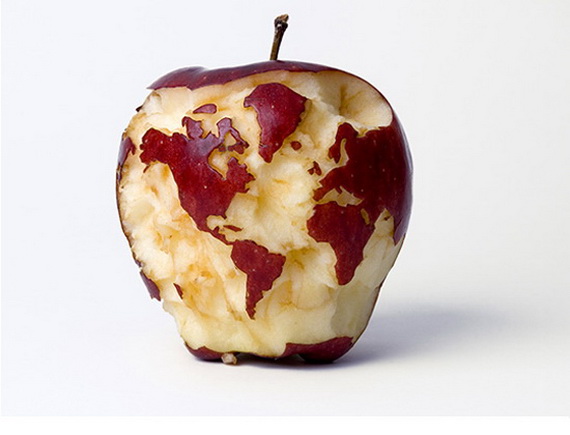 Teshuvah can only begin if I do not give up on myself. If I believe that I am totally worthless, then I cannot begin to think about repentance. However, when I realize that somewhere deep down inside, there is still the dignity of man, there is still something holy, then I can use that feeling and begin the trek down the road to repentance. This is what Rachav meant when she referred to the rope, the window, and the wall.
The Mishneh states “Don’t be wicked in your own eyes” [Avot 2:13]. This is why Rosh HaShanah must precede Yom Kippur. In order for a person to begin the process of Teshuvah, he must first realize that he is somebody of value. He must take note: I am a son of Israel. I have a King in Heaven. I am a servant of the King. Yes, I may not have been a very good servant, but at least I can say that I am His servant.
The realization that there is a King and that I am His servant, and therefore that I have self-worth, is a prerequisite for the process of repentance. If we would start the Ten Days of Repentance merely with confession – merely with a recitation of all the sins that we committed, we would overwhelm ourselves with our worthlessness and we would not be in a position to repent.
For this reason, one of the busiest times of the year for buying suits and expensive cloths is right before Rosh Hashana. We dress like kings and queens, princes and princesses, for we are what we wear. We feel uplifted when we wear nice cloths and eat the best foods.
That is how we notch up our human dignity; that is how we build our self-esteem.
On Rosh HaShanah, we never say the words “Al Chet” (upon the sins…) or “Ashamnu” (we are guilty). We leave the sins out of it, for the meanwhile. On this day, a person must think about who he is, his vast potential and his goal in life. From such a perspective, repentance may flow forward.
The Baal Shem Tov (1698-1760) suggested a beautiful Chassidishe insight on this past week’s portion: “If your dispersed shall be at the ends of Heaven, from there the L-rd your G-d will gather you and take you.” [Devorim 30:4] The Baal Shem Tov comments that we would have expected the pasuk [verse] to read: “If your dispersed shall be at the ends of the Earth.” However, the pasuk says “…at the ends of the Heaven”. The Baal Shem Tov teaches the same lesson that we mentioned above. The only time a person can be gathered back to G-d, is if “Heavenliness” is still present within the person. If a person feels that he still has a Heavenly attachment – despite the fact that he may have sullied himself with the pleasures of Earth, then from there, G-d can gather him back.
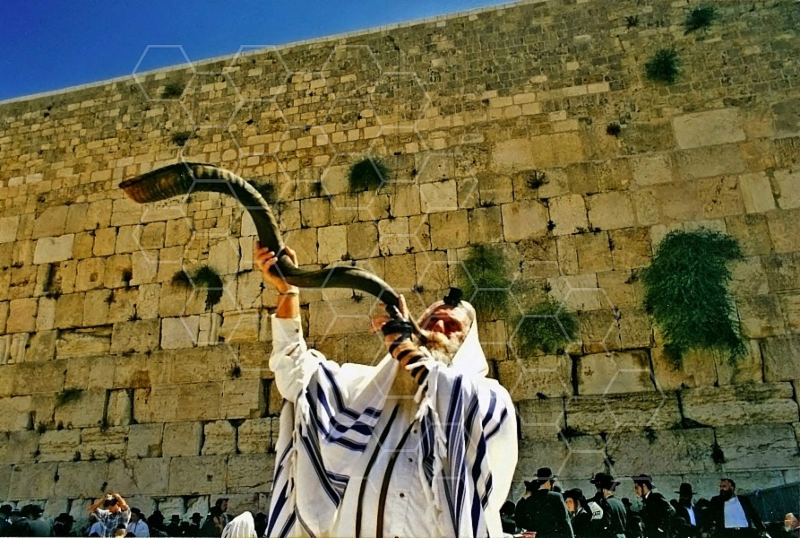 It is astonishing. Here we have the most powerful woman that ever lived, having looks, brains, personality, education, class, money, power, charm, and grace. She can get any man she wants and she’s in her prime. There are not many women like her; a master in giving and receiving pleasure. However, she gives up on that life for a life of being a Jewish mama!! She felt it would be more fulfilling, playing the role of building a Jewish home and raising children with her husband. It would be more real and satisfying as a woman. Many famous prophets came out of the union of Yehoshua and Rachav, most notable, Yirmiyahu.
 Rachav was a harlot for 40 years, but she eventually married Yehoshua bin Nun, the greatest man of his generation. It all began with her contemplation of the wall, the rope, and the window and her recognition that man – for all of his shortcomings – still possesses holiness. That must be the beginning of the path to Teshuvah.
|
A smart candidate knows what buttons to push to get the vote
| This article was constructed with the help of either writings, lectures or shiurim of Rabbi’s Akiva Grunblat, Yissachar Frand, Yonnasan Zweig, Asher Hurzberg, Yossi Bilus, Paysach Krohn, Yossi Bilius, Mordechai Kamenetzky, Rabbi Doctor Meir Levin |
  Moshe’s last hurrah as leader, before he died, was an important war that was vital to the leadership of Israel. We learned in the last couple of parshiot that non-Jewish women of Moav and Midyan succeeded in seducing our Jewish boys to sin. Initiated by Bilaam and Balak, this clever and devious plan resulted in the death of 24,000 Jewish men, by plague, as God’s punishment for being swayed by these women. Moshe’s last hurrah as leader, before he died, was an important war that was vital to the leadership of Israel. We learned in the last couple of parshiot that non-Jewish women of Moav and Midyan succeeded in seducing our Jewish boys to sin. Initiated by Bilaam and Balak, this clever and devious plan resulted in the death of 24,000 Jewish men, by plague, as God’s punishment for being swayed by these women.Over the course of history, the beautiful shigsa has always been a thorn in our side!! She is the satanic temptress! Our responsibility, difficult throughout the ages, is to resist selling our souls to this Dorian Grey arrangement. It is our job to recognize the gravity of the sin of cohabiting with women outside our faith or engaging in illicit relationships. It is evident how much G-d can be angered when we take that route. This weeks parsha tells the story of revenge, in which G-d orders the Israelites to mobilize an army and attack Midyan. This command raises an obvious question, addressed by Rashi: Midyan? what about Moav? Why weren’t they attacked as well? They were just as much responsible for the incitement! Why were they spared? The up and coming election dilemma of whom to vote for, Clinton or Trump, serves as a wonderful backdrop for the answer to this question. Every politician will do his very best to get you to vote for him. It is rather interesting how they lure voters and seduce them to their respective sides. What is the best tactic? What do we want to hear? Lower taxes? Better national security? If there is one line that surmises their success in winning your trust, THIS IS IT!! It is something which I heard from Rabbi Akiva Grunblatt this past week. “They don’t care how much you know until they know how much you care.”  WHAT MAKES ONE A GOOD LEADER AND ONE THAT IS DESERVING OF MY VOTE? “His eyes shall be red with wine, and his teeth white with milk” (Bereishit 49:12) The above is part of the blessing that Yaakov gave to his son Yehuda, in preparation of the royal lineage of the Jewish people. Clearly, wine has always been associated with royalty. But what do the color white and milk have to do with Yehuda’s kingly descendants? The Gemara (Ketuvot 111a) has a fascinating interpretation of this verse; “Better is the one who shows the white of his teeth (i.e. in a smile) to his friend, than the one who gives him milk to drink.” In other words, “white toothed from milk” can be interpreted as, “to be white toothed with a smile is better than to give milk.” This is because one who provides milk to the poor provides a physical gift that sustains the person for a little while. But one who smiles at and comforts the forlorn with encouraging words, provides a listening ear or a pat on the back, gives that person an everlasting feeling of self worth. This lifts his spirits and sustains him more than any physical gift which merely amounts to a temporary respite. This concept is also found in the animal kingdom. The Gemara (Kiddushin 82b) describes what kind of professions certain animals would assume if they had to enter the workforce; the lion would be a porter and a fox would be a merchant etc. While it is easily understandable how the cleverness of a fox would make him a successful merchant, why would a lion, king of all the animals, choose the lowly job of a porter? The benefits gained by Ruth’s stemming from aristocracy are twofold: From the perspective of the Jewish nation, the genetic base of monarchy has already been established through her own personal standing. From a universal perspective, the Moshiach who will stem from the Davidic dynasty will influence and teach all of mankind. The infusion of nonJewish monarchy into the Davidic dynasty will allow for a greater universal impact. This is the message that Yaakov wanted to instill in the future kings of the Jewish people, through Yehuda, ancestor of King David. They will have the wine of royalty but it must be used with the “white teeth” to empower others. The Midrash tells us that during Moshe’s tenure as a shepherd, one of the sheep ran away. He chased the sheep, brought it back to the rest of the flock, and carried it home. G-d looked upon him and said, “A man who cares for his sheep will care for his people.” That act catapulted Moshe to the position we know. Acts that are bold and courageous often personify leadership, character, and commitment. People think that only those gallant and daring acts can lead them to greatness and glory. The Torah tells us that it is not so. The Torah links Moshe’s selection to Divine leadership with the simple task of shepherding. The qualifications that G-d looks for are not necessarily what we humans would. We often look for honors, accolades, achievements, and accomplishments that are almost superhuman. G-d, on the other hand, cherishes simple shepherding, He loves care and concern for simple Jews. We may come to Him with resumes of brilliance, courage and valor, but He does not need that. He wants consistency, love, compassion, and, perhaps most of all, humble simplicity. Moshe had those qualities too. It was those qualities of compassion, not the forceful abilities he used in attacking the Egyptian taskmaster, fending off evil shepherds, or rebuking Israel in Devarim, that were chosen to cast Moshe into the light of leadership. We may be bold and courageous, but without compassion for the little things, without the humility to find lost sheep, we may be simply overqualified. There is a Medrash that tells us “G-d does not elevate a person to greatness until he first tests him with the little things.” What makes the leader is his ability to relate to the common man and to see the mundane needs of regular people. Although our family was always Shomer Shabbat, at the time, we were more modern and I would go mixed swimming. That is something my family does not do today, as we are more careful with the laws of modesty. My summer days, on one of my visits when I was 16, consisted of grabbing a trendy, large, fresh squeezed fruit drink for breakfast and taking the kav 11 bus with my cousins to the beach of Tel Aviv, Chof Frishman. On a number of occasions on our way back on the crowded, 5:00 bus, returning to my cousins’ residence at Yad Eliyahu, I would witness Israeli soldiers returning from their tour of duty. Interestingly, as they entered the crowded bus with their rifles and heavy gear, the passengers would get quiet, out of awe and respect, and the girls my age that I knew from Chof Frishman would rise and give them their seats. Many of the 16 year olds couldn’t wait to enter the army. It was a sense of pride. A soldier was well respected and would try to enter the most elite squad in the army or air force. Fast forward about eight years until I was learning in a Yeshiva in Yerushalayim. Here too, I had relatives who I would frequently visit. On many occasions on the crowded bus returning from Yeshiva to their residence, I witnessed how the entrance of Yeshiva boys wearing black hats and carrying heavy holy books, would also initiate the respect and awe of the passengers. Almost the same scene unfolded, where the young girls would rise and give up their seats for the Yeshiva students. Many 16 year olds couldn’t wait to enter the big Yeshivot. They would take exams and hope they would get excepted to the best Yeshivas in Israel. Two polar opposites and different cultures, though both deserve the same respect, for both protect our country!! Though the rift between these two cultures can be a bit hostile at times, in the 1970’s when both worlds were defining their marks more clearly and veering off in opposite directions, an unfortunate event happened. We recently marked the 40th anniversary of the raid on Entebbe.. When the shocking news of the hijacking reached Yeshivat Mir, many quite expectedly, were in a somber mood. A massive Yeshiva Tehilim reading was scheduled, preempting all learning. The Yeshiva awaited the great Rosh Yeshiva, Rav Chaim Shmuelevitz, whom we quote many times in our articles, to enter and lead the services. Rav Chaim was up in age and was not a well man. As a matter of fact, two years later he would pass on. As the Yeshiva stood silent after hearing that the Rosh Yeshiva was about to enter, they heard the foot steps of the Rav, slowly climbing up. The Talmud states [Sanhedrin 8a] that a Judge has to suffer with his congregation, like a nursemaid carries a baby [Bamidbar 11:12]. This is a very apt analogy. |
G-d demands to care for your fellow Jew at any price
| This article was constructed with the help of either writings, lectures or shiurim of Rabbi’s Yissachar frand, Rachamim Shaulov, Rabbi Dovid Hoffman, Yossi Bilius, Asher Hurzberg and Boaz Davidoff |
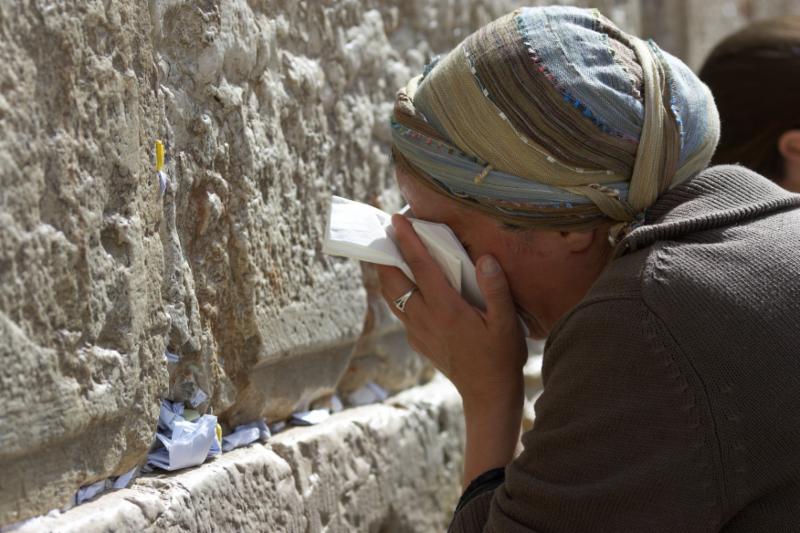  The first nine days of the Hebrew month of Av, culminating with the fast of Tisha b’Av, observed on the date when both Holy Temples were destroyed, are the blackest days on the Jewish calendar. These are days of national mourning, when we contemplate the nearly 2,000-yearlong galut, the physical and spiritual displacement of our nation.
Though festivities are inappropriate for these days, there is one avenue of joy that is permitted -joy associated with serving G-d, the joy of a mitzvah. In fact, the celebration of certain mitzvot overrides the sorrowful nature of the time, and calls for a seudat mitzvah-a celebratory mitzvah meal- during which the mourning practices of these days are relaxed.
One such joyous occasion is the participation in a siyum- the completion of a tractate of the Talmud-which is both a mitzvah as well as an academic feat worthy of celebration. What makes a celebration complete, of course, is the appearance of special foods. Therefore, at these siyum gatherings of at least ten men, the nine days prohibitions of eating meat and drinking wine are lifted.
I shouldn’t have to tell you what happens when wine and meat are easy access at a party. A friend of mine boasted that he attended a siyum masechet almost every night of the nine days, something which came across as a bit odd. I suspected, that between his being a big party goer and his neighborhood’s known excess at kiddushes, weddings, and bar mitzvot, these siyumim were scheduled out of sheer effort to party. A sham you might say; an excuse to eat pastrami and garlic hotdogs or steaks. As if to declare, “hey we can do eat meat during the nine days within the confines of Halacha-HA- HA! We after all, have a rebellious nature, don’t we? We were able beat the system!! We were able to eat what we wanted and not violate any laws. We’re smart and clever Jews.”
There is, however, a deeply rooted reason for having such festive occasions during the nine days and it makes perfectly logical sense.
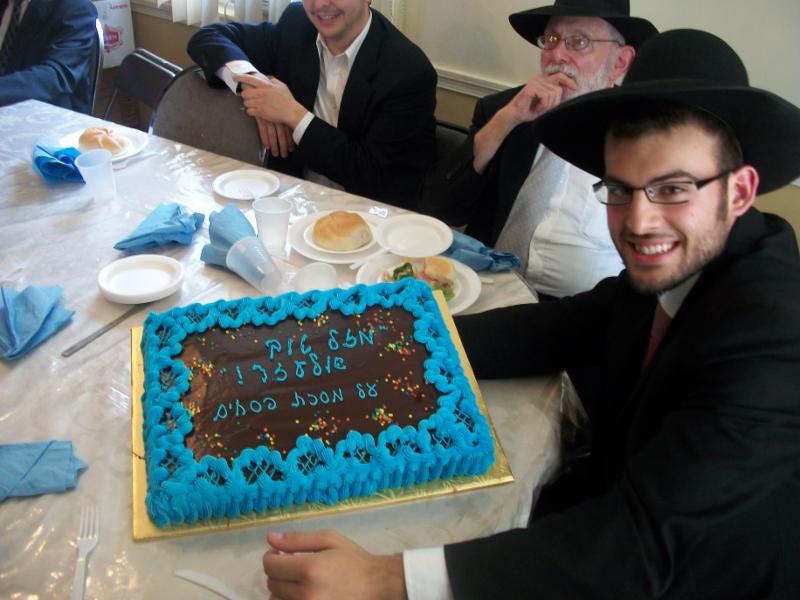 Eliezer finished a masechet and a special cake was made for the occasion, he’s celebrating with a cake and a great meal with his buddies
 There is a Gemara in tractate Shabbat that mentions Abaya – one of the prominent figures of the Talmud- would pay for the celebration of his friend’s completion of a tractate and invite the entire rabbinical body, making a public display of an otherwise private event.
There is actually a Chassidic tradition to participate in siyumim during each of these nine days!! The question is why? Why do some celebrate deliberately? Isn’t doing so slighting the mourning period? Isn’t it insulting the ones who perished on during this time? Isn’t that putting salt on the wound experienced by our ancestors? One must realize the ramifications of this dark period. Tisha B’Av is brutal! Don’t people realize it’s Tisha B’Av!
Our Talmudic Sages teach that the Second Temple was destroyed due to sinat chinam – baseless hatred between fellow Jews. Typically, this is taken to mean that the Jews of that time, seemingly much like Jews of every time, were not fond of each other. There’s nothing fancy about it. They simply hated each other and perpetuated an anti-collective environment and as a result, the Temple was destroyed. We did not deserve a Temple if we couldn’t even get along. In a practical sense, how could we expect to work together in the Temple if we hated each other? Even in a halachic sense, how could a priest achieve atonement for another person if he didn’t even care if that other person was forgiven? Caring for one another is a prerequisite to service in the Temple. To be sure, this is a valuable and important lesson: “A house divided against itself cannot stand.”
WHAT IS THE REMEDY?
I heard a fascinating story from Rabbi Rachamim Shaulov quoting Rabbi Yissachar Frand, which I think properly directs the barometer towards where we should be in our relations to our brethren. This story happened recently, only a few summers ago. There was a Chasidic couple who, initially, were not able to have children. However, after a time, the Master of the Universe, in His eternal kindness, blessed the couple with twins.
During the grueling New York summer, many Chassidim escape to the country, though husbands return to the city on Sunday nights for the workweek. (Hey, money has to come from somewhere!) While the wives and children run around between the grass and the trees all summer, the husbands only taste the country heaven on Shabbat. This couple was one of many to engage in this practice.
 Sometime during the early part of one such week, the mother and her eighteen month old twins attended a rather large and crowded cafeteria in the country Bais Yaacov (girls school), upstate. Washing for hamotzie at the side of the room, she wasn’t able to carry both twins and left one briefly unattended at the table. Unfortunately and to her horror, when she returned the baby was gone. Her eyes stretched wide open looking, first in her vicinity and then searching up and down the rows of the cafeteria, but the child was nowhere to be found. She let out a panicked scream, asking if anyone had seen her baby. The people nearest her, began looking around, but after a few minutes, returned to their lives. In a desperate attempt, the mother picked up the other twin and screamed “has anybody seen a child that looks like this one!!”. After a brief silence, the noise volume in the room went back to where it was before the announcement. The mother left the cafeteria in a state of hysteria, screaming and crying as she walked through the parking lot holding the one baby. A girl approached her and asked with concern, what had happened. The mother explained, whereupon the girl assured her that they would find the missing baby. She then called a number of her classmates and assigned them each an area to search for the missing child. One was assigned one to the gym, one to the administrative offices, one to the classrooms, and one to the bathrooms. Unfortunately, after half an hour of searching to no avail, the girls came back empty handed.
 The girl who organized the search told the mother that she would return to the school and search herself, at which point she disappeared for some time. The mothers eyes was fixated on the entrance of the school, where the girl had entered to find her child. Low and behold, twenty minutes later, the mother saw the organizer come out of the building and in her hands, safe and sound, was the missing child!!
The mother, crying tears of joy, hugged her child and thanked the organizer profusely. The girl said that she found the baby in one of the classrooms. “Wait a minute,” the girl that was assigned to search the classrooms wondered out loud. “I was in that classroom and I did not see the child?” The organizer replied, “I looked under each and every desk”. Astonished at her dedication, the mother asked why she was so particularly driven and concerned.
The organizer responded with moist eyes, “Because I’m Leiby Kletzky sister. I know what it’s like to lose a loved one.”
(On July 11, 2011, Leiby Kletzky, a Hasidic Jewish boy, was kidnapped as he walked home from his school’s day camp in the mainly Hasidic neighborhood of Boro Park, Brooklyn in New York City. Kletzky’s disappearance sparked an all-out search by New York City police and a block-byblock search by as many as 5,000 Orthodox Jewish volunteers. Leiby Kltzky was found to have been abducted and murdered.)
Does our predicament have to be such, before we can act in that manner? Do we Chas V’shalom, need to endear pain similar to Leiby kletzky’s sister, in order to experience real concern for others?!. Might one say that Kletzky’s sister performed above the norm and that is too high a standard for the rest of us? Absolutely not!! A baby might have died if not for Leiby’s sister’s dedication! The proper response is to raise our level of caring for our fellows. Jews have always set the standard for behaving like menches. Our actions should always be well thought through and we should always strive for the highest levels of compassion and kindness.
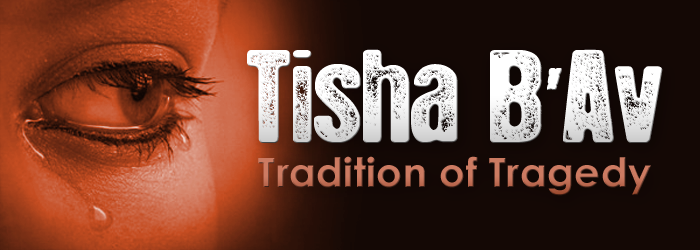 I came across a story that really defines the type of excellence we should have in our caring for our fellow Jews. I found this story to be quite moving and that it gave me something to strive for in my associations with my brethren.
Wars are brutal and World Wars are all the more devastating. When World War I broke out, many Jews were drafted to fight on the battle fields for the countries in which they resided and as one could imagine, there were many Jewish fatalities. When the great Tchortcover Rav, Rabbi Yisrael Friedman, arrived in Vienna after being displaced from his home, he immediately began working to ease the plight of Jews who had left everything behind, to save themselves and their families. He was also very involved in persuading Jews who had lost the way of Jewish tradition and Torah values to return to the fold. He insisted that he was available to assist anyone and everyone. He’d say, “this is what I learned from my holy fathers, who took care of and worried about those who had fallen by the wayside.” One of his concerns, was saving Jewish boys from bing drafted into the army. Besides for the dangers that always come with battle, they were persecuted by their non-Jewish, fellow soldiers. It was a no win situation.
His efforts soon caught the attention of the authorities, who were not pleased. In order to confirm their suspicions, they dressed up one of their officers as a Jew and sent him as a spy, to the Rebbe. The official portrayed an anguished Jew, crying and telling the Rebbe that he had only one son who had been called to perform his army service. He begged the Rebbe to have pity on him and help his son evade the army.
R’ Yisroel listened to the man’s story and, when he had finished, asked the man to repeat the story. The man again told over the whole affair, crying bitter tears for his son. When he had finished, the Tchortkover Rebbe asked him to tell over the whole story, yet again. When the man finished for the third time, the Rebbe said sternly, “Don’t you know that you have to obey the laws of the country? It is forbidden to evade army service! We live here and we have to be proper citizens of our host country”. The man left without another word.
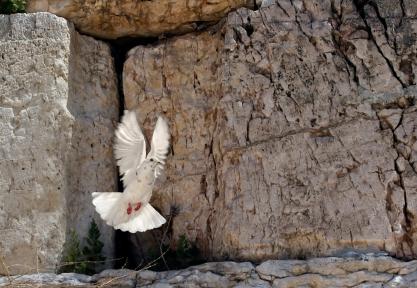 A few days later, a high-ranking officer came to thank the Rebbe for encouraging people to do their army service. They had heard rumors that he was helping people avoid the army, but they were pleased to note that these were not true. The Chasidim were convinced that it was only through a miracle – ruach hakodesh, perhaps – that the Rebbe had known that the crying man was a disguised officer. The Tchortkover sought to dispel this “miracle” and explained how he had suspected the truth.
“Normally, when a Jew tells me his personal sorrows,” the Rebbe said, “I am able to feel a portion of his pain and suffering deep inside me. Yet, when this man told me his story, his tears did not affect me at all. At first I thought it was my fault, that perhaps I was not capable of feeling this man’s suffering. I decided, therefore, to ask him to tell me about his problem again. Perhaps I would then feel part of his pain. I still, however, did not feel touched by his story and I also felt that this man himself was not properly upset by his own problem. I asked him to repeat it a third time and then I noticed that it was indeed as I had suspected. The man was not really upset and that was the reason that I had not been able to feel his pain. I therefore knew that his story was not true and that he was lying.”
When one acts with chessed- kindness- his sensitivities toward others become immeasurable, to the extent that he can actually feel not just another’s pain, but his joy as well. The concept of one nation with one soul has never been portrayed more profoundly, than in this story. We of the Jewish nation, are one unit and we are connected to each other, like parts of a single body.
Returning to my party going friend and his boasts of attending so many siyumim and consuming so much meat and wine, that he made our ancestors in the desert look like amateurs. Could the food and wine seriously have been that good? I honestly don’t think so. We are living, thank Gd, in a country where food is “easy access”. Ask any immigrant and they’ll tell you that there is no comparing their country of origin to America. We are blessed in this country, bli ein hara. It is true that my friend likes to eat, we have that in common, and perhaps that is why he’s my friend, but I think there is a deeper reason for his attending so many siyum masechet parties. He, like me, enjoys the companionship. I inherited that trait from my father. I always picture my father z’l, when he was in his forties with a shot glass of konyak, raising it to his friends at our Shabbat table and saying Lechaim. It brought camaraderie, it brought unity, it built relationships and it forced people to get closer and care about each other. A siyum is the anthisisis of the anti-social environment about which, we mourn.
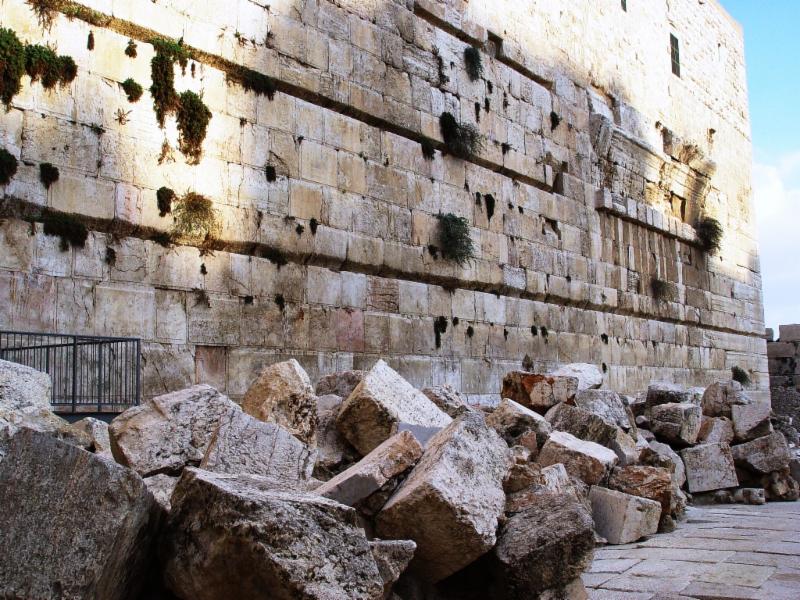 No matter how much we may dislike each other, we must be aware of the consequences, for Gd hates disunity with a passion. We look at our history and see the destruction of the Temple as a result of this problem. Even the corrupt and idolatrous generation of King Achav, was spared, because they were unified.
If someone doesn’t suit our fancy, instead of pushing him aside we should try to reach out to him. Perhaps we can go the extra mile for him to make him better. Perhaps we can go the extra mile in all forms of chessed and caring. Perhaps, if we do this, there will be no more mourning on Tisha B’ Av. Perhaps we can build a better world and be a part of the ultimate festive meal, with plenty of meat and wine, when the Mashiach arrives!
|



 YOU BE THE JUDGE: This story occurred in Israel. It makes sense that it happened there, for only a Jewish mind can be so creative:
YOU BE THE JUDGE: This story occurred in Israel. It makes sense that it happened there, for only a Jewish mind can be so creative: e reader, the judge of this case: Was the neighbor negligent or was this an unavoidable mishap? Did he dutifully protect the house? Is it his fault he was conned? He just wanted to help his neighbor and prevent him from losing a brand new couch! Plus, shouldn’t he be judged more leniently, since he was a shomer chinam who watches something for no pay? How literally do you take the owners words: DO NOT LET ANYONE INTO MY HOUSE…… NO MATTER WHAT! Was that mandate violated? There are always exceptions to the rules. Is monetary loss considered a valid exception?
e reader, the judge of this case: Was the neighbor negligent or was this an unavoidable mishap? Did he dutifully protect the house? Is it his fault he was conned? He just wanted to help his neighbor and prevent him from losing a brand new couch! Plus, shouldn’t he be judged more leniently, since he was a shomer chinam who watches something for no pay? How literally do you take the owners words: DO NOT LET ANYONE INTO MY HOUSE…… NO MATTER WHAT! Was that mandate violated? There are always exceptions to the rules. Is monetary loss considered a valid exception?







